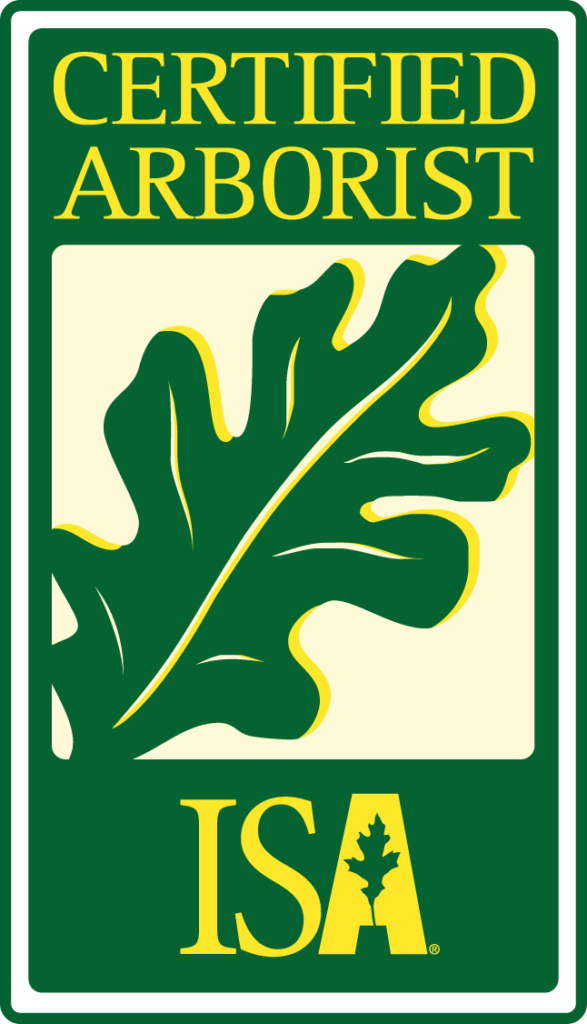
ISA Certification is a voluntary program that tests and certifies your achievement of a professional level of knowledge and skill in the field of arboriculture. When you become an ISA Certified Arborist®, you are recognized by your peers and the public as a tree care professional who has attained a generally-accepted level of knowledge in areas such as tree biology, diagnosis, maintenance practices, safety, and other subject and practice areas within the tree care profession as identified through periodic job task analyses. Hiring a Certified Arborist provides tree owners and government decision makers the opportunity to become better informed about proper tree care and their selection of services based on the expertise represented by your credential.
Achieving ISA Certification also builds your self-image. By studying for and passing the certification exam, you demonstrate a dedication to your own professional development and the advancement of proper tree care practices. The process of becoming ISA Certified and maintaining the designation provides you with personal incentive to continue your arboricultural education and training. Presenting your ISA credential to potential employers makes you more competitive in the job market, and for employers, encouraging ISA Certification is a tool to assist in training their existing tree care personnel.
Who Is Eligible to Apply for the ISA Certified Arborist® Exam?
The ISA Credentialing Council requires a candidate to have a minimum of three years of full-time experience in arboriculture or a combination of education and practical arboricultural experience. One year of full-time experience is equal to approximately 1,795 hours of work.
Acceptable experience includes the practical use of knowledge regarding pruning, fertilization, installation and establishment, diagnosis and treatment of tree problems, cabling and bracing, climbing, or other services that directly relate to arboriculture.
Examples of experience sources include, but are not limited to:
You may meet the eligibility requirement utilizing a combination of education and practical arboricultural experience through one of the following options:
Completed College/University Accredited Degree Programs
Assessment-Based Certificate Programs (Diplomas, Certificates)
Registered Apprenticeship Programs (RAPs)
Registered Apprenticeship Programs (RAPs), Industry Recognized Apprenticeship Programs (IRAPs), and other formal training and accreditation programs that have been reviewed and approved by federal/national and state governmental agencies and/or are an accredited and/or recognized program as part of a national qualifications framework with formal assessment-based education and work experience may be considered for eligibility equivalency within the scope specified here for eligibility. Qualified third-party entities responsible for these programs may contact ISA for more information.
IAA offers workshops to help prepare you for the exam. Typically, classes run for one 2.5 hour night per week for nine weeks with the exam on the last night of class. Class is taught from the Arborist Certification Study Guide and the ANSI Z-133 Safety Standards. We also offer these classes in Spanish. Classes run in the spring and in the fall, check the website calendar for upcoming classes – both in person and virtual.
The examination is made up of 200 multiple-choice questions. Each question has four possible answers listed, only one of which is correct. You will have 3.5 hours (210 minutes) to complete the written exam. You must pass the exam to obtain the certification.
The written exam content is divided into 10 areas of knowledge, and the percentage next to each area below reflects the percentage of questions associated with that area. These are subject to change when a new job task analysis is completed for the exam.
1. Tree Biology—11%
2. Tree Identification and Selection—9% 3. Soil Management—7%
4. Installation and Establishment—9% 5. Pruning—14%
6. Diagnosis and Treatment—9%
7. Trees and Construction—9%
8. Tree Risk—11%
9. Safe Work Practices—15%
10. Urban Forestry—6%
If you do not pass the exam, you are allowed one free retake.
Certification is valid for 3 years. To retain certification after each three-year period, an ISA Certified Arborist® must recertify. The ISA Certification Program offers two methods of recertification. The first method is to retake and pass the certification exam again. The second option is to accumulate at least 30 continuing education units (CEUs) over the three-year certification period that are related to the 10 tested domains on the exam and pay the recertification fee.
Exam application provides more details on the certification. Follow this link to the exam application.
Exam Prep Courses
Fall Homewood
Date
Thursday Nights
September 4th – October 30th, 2025
Time
6:00pm-8:30pm
Location
Homewood Landscape Building
18355 Pierce Ave, Homewood, IL 60430
Available Certifications
ISA Certified Arborist Utility Specialist
ISA Certified Arborist
ISA Certified Tree Climber
ISA Board Certified Master Arborist
ISA Certified Arborist Municipal Specialist
WORKSHOP & EXAM FEES BREAKDOWN